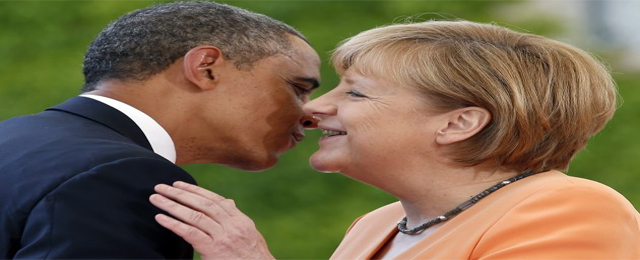The Snowden scandal has been a serious blow to the German Administration’s trust in its transatlantic partner, and Angela Merkel has made no effort to disguise it. Berlin is demanding a ‘no spy agreement’ with Washington, something without precedent in mankind history and that has, understandably, been rejected by the Obama Administration. The German government has also criticized the U.S. for the Russian-leaked “fuck the E.U.” remarks made in a private conversation by Assistant Secretary of State for European Affairs, Victoria Nuland, regarding Ukrain’s crisis.
The breakdown of the trust between the U.S. and Germany can have long-standing consequences. The most obvious is in the area of economic cooperation. Germany’s enthusiasm for a transatlantic free trade agreement (the so-called Transatlantic Trade and Investment Partnership, or TTIP) has cooled off. As Annette Hauser, executive director of the Bertelsmann Foundation office in the United States, points out, “the deterioration in bilateral ties has increased already heightened concerns of adopting US data-protection and food-safety standards, which are perceived to be subpar.” Germans do not want to have “chlorinated chicken and hormone-treated beef in their supermarkets”. Since the main hurdles to transatlantic free trade are not tariffs, but regulations and standards, trust on each counterpart is essential to achieve meaningful results.
Germany’s stance has been further complicated by the obvious geo-strategic honeymoon between Obama and French President Francois Hollande. Obama is thankful to Hollande for France’s involvement in the fight against Al Qaeda in the Sahara, and the French has reciprocated that by becoming the biggest European advocate of the TTIP. To Merkel’s chagrin, Germany is somewhat at odds with what was supposed to be a key part of her political legacy: The Transatlantic Free Trade Association.
American politics have added to German suspicion. Facing a tough election in November, the Speaker of Senate, Harry Reid, has declared that he does not plan to give the Obama Administration ‘fast track’ authority to negotiate trade deals. The absence of a ‘fast track’ means that the Senate can interfere in the negotiations at any time and, in practical terms, postpone any chance of reaching a comprehensive free trade agreement to 2017, when the new President of the United States takes office.






Be the first to comment on "Ukraine is not enough to warm up US-German relations"